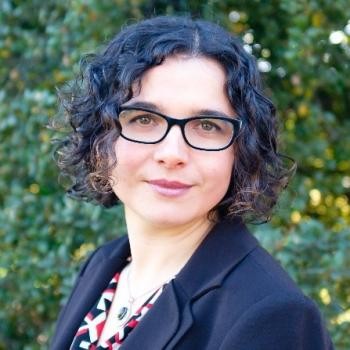Keynote at Learn2Reg 2025, MICCAI¶

Prof. Mirabela Rusu, Ph.D.¶
Assistant Professor of Radiology, Stanford University¶
Date: 27 September 2025 | Keynote Location: DCC2-3F-301 (DCC 2) | Time: 13:30 -15:30
Title: “Are we there yet?” in multimodal registration?
Abstract: Multimodal image registration is a preprocessing step in many clinical applications, that remains technically challenging while caring major downstream implications for patient care. AI approaches for image registration have many advantages over conventional iterative approaches but are not perfect. Studies have shown the benefit of registering radiology and pathology to label radiology images with pathology labels allowing the training of AI model for cancer detection on MRI. Other clinical studies have shown the utility of registering MRI and ultrasound for mapping of biopsy target lesions from MRI onto real-time ultrasound to guide procedures. These are just a few examples from my team where we developed AI-based registration methods focused on facilitating cancer detection. This talk will present some lessons learned and discuss the future on registration in the context of clinical needs (e.g., cancer detection).
Biography: Dr. Rusu is an Assistant Professor, in the Department of Radiology, and, by courtesy, Department of Urology and Biomedical Data Science, at Stanford University, where she leads the Personalized Integrative Medicine Laboratory (PIMed). The PIMed Laboratory has a multi-disciplinary direction and focuses on developing analytic methods for biomedical data integration, with a particular interest in multimodal fusion, e.g., radiology-pathology fusion to facilitate radiology image labeling, or MRI-ultrasound for guiding procedure. These fusion approaches allow the downstream training of advanced multimodal machine learning for cancer detection and subtype identification at pixel-level. Our approaches have been applied in oncologic (prostate, breast, kidney) and non-oncologic applications.
Dr. Rusu received a Master of Engineering in Bioinformatics from the National Institute of Applied Sciences in Lyon, France. She continued her training at the University of Texas Health Science Center in Houston, where she received a Master of Science and PhD degree in Health Informatics for her work in biomolecular structural data integration of cryo-electron micrographs and X-ray crystallography models.
During her postdoctoral training at Rutgers and Case Western Reserve University, Dr. Rusu has developed computational tools for the integration and interpretation of multi-modal medical imaging data and focused on studying prostate and lung cancers. Prior to joining Stanford, Dr. Rusu was a Lead Engineer and Medical Image Analysis Scientist at GE Global Research Niskayuna NY where she was involved in the development of analytic methods to characterize biological samples in microscopy images and pathologic conditions in MRI or CT.
